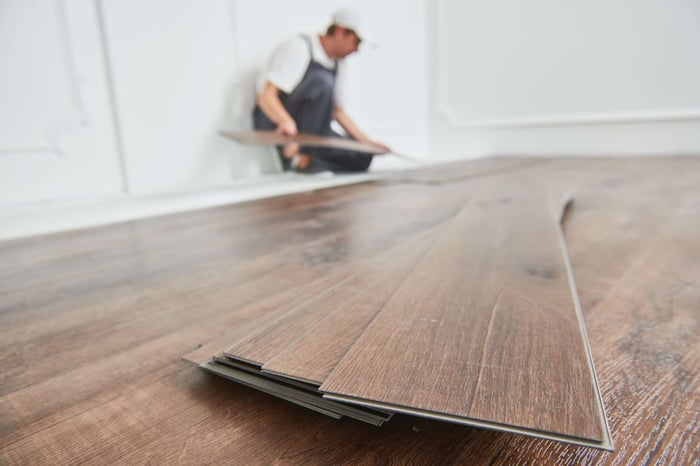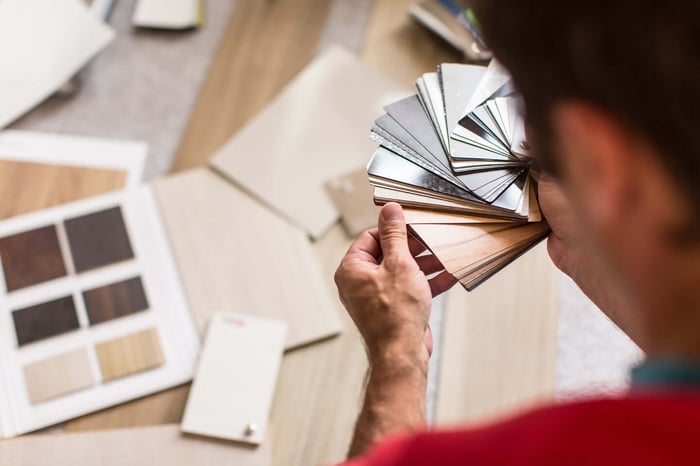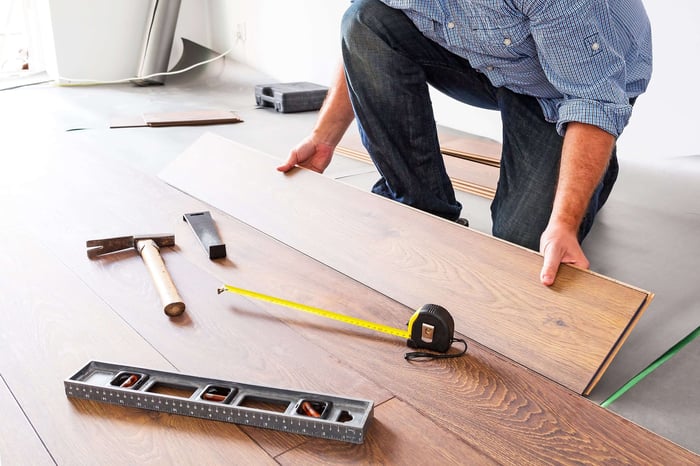The answer to this question is Yes. Although not often, vinyl plank flooring is known to expand or contract based on changes in its environment. Thankfully, there are ways of limiting and, in some cases, even preventing this expansion and contraction altogether.
Expert artisans of products like Harper Floors’ SPC vinyl flooring explain why it is normal to see vinyl planks expand. Below you will find tips on how the proper installation can protect your vinyl floors from potential damage.
Why Do Vinyl Floors Expand and Buckle?
Vinyl flooring is an affordable, synthetic building material that is often referred to as “luxury vinyl plank floors” due to its luxurious aesthetic and long-lasting durability.
Environmental Factors
Wood is a hygroscopic material that expands and contracts due to changes in its environment. Vinyl floors are made from a PVC compound and are similar to natural wood; changes in temperature and humidity may cause vinyl floors to naturally expand and contract.
To combat these environmental fluctuations and to protect your vinyl floors, keep your home at a comfortable and consistent temperature. This strategy ensures that the thin vinyl won’t buckle or constrict. Vinyl floors will always come with guidelines with specific parameters regarding your home’s temperature and humidity levels because of this.
Weakened Subfloor
If you notice your vinyl floors looking less than perfect, it may not always be a problem with the actual planks. Rather, you may be experiencing the effects of water damage to your subfloor or an inadequately prepared subfloor.
Although vinyl planks are waterproof, typical subfloor material such as plywood is not waterproof. As a result, the subfloor is susceptible to water or moisture damage. If your subfloor collects too much water and moisture, it can buckle underneath your vinyl planks and cause a number of concerns.
Aside from water damage underneath your vinyl planks, an inadequately prepared subfloor can also be the reason for vinyl plank contracting, buckling, and subsequently cracking. Prior to installation, subfloors must be prepped by meticulously cleaning (sweeping, dusting, vacuuming) all debris and leveled. If the installer fails to take this step prior to installation, it is very common that vinyl planks will be affected down the line. Vinyl floors will always come with step-by-step instructions on pre-installation prep, such as this.
Dragging Heavy Items
Heavy household items like couches, recliners, and entertainment units with protected feet won’t impact your vinyl flooring. However, dragging these heavy furniture items across your floors will likely cause damage to the surface of the floors. Be sure to refer to your care and maintenance guidelines on ways to safely move heavy furniture, such as using furniture sliders safe for vinyl floors. Carefully lifting heavy objects when moving them in or out of the room instead of dragging them is also a safe method.
Protecting Your Vinyl Floors
To get the most out of your new vinyl floors, adopt a realistic care and maintenance strategy from day one.

Check out our tips for taking care of your vinyl floors!
Use Caution When Moving Large Objects
You should always be cautious when moving large objects from one part of the house to the other. Although your vinyl floors will withstand the weight of your furniture and other home accessories, they are still prone to scratching and buckling.
Whether you are moving your couch to the other side of the room or bringing in a new TV stand, you should always grab a friend to help you carefully carry it or cautiously slide it across the floor with protection.
Monitoring Sunlight
Avoid overexposing your floors to direct sunlight by closing your blinds during the hottest parts of the day. UV film is also an excellent solution for windows and screen doors.
Don’t Forget the Expansion Gap
Typical vinyl plank flooring guidelines will recommend leaving a ¼-inch space along the perimeter of the room in which the flooring is to be installed, which we call an “expansion gap.” This gap leaves a healthy amount of space for the vinyl to expand without buckling.
For additional questions and concerns on new vinyl floors and how to care for them, reach out to our team of dedicated experts at 1-888-807-2704 or email us at info@harperfloors.com.









